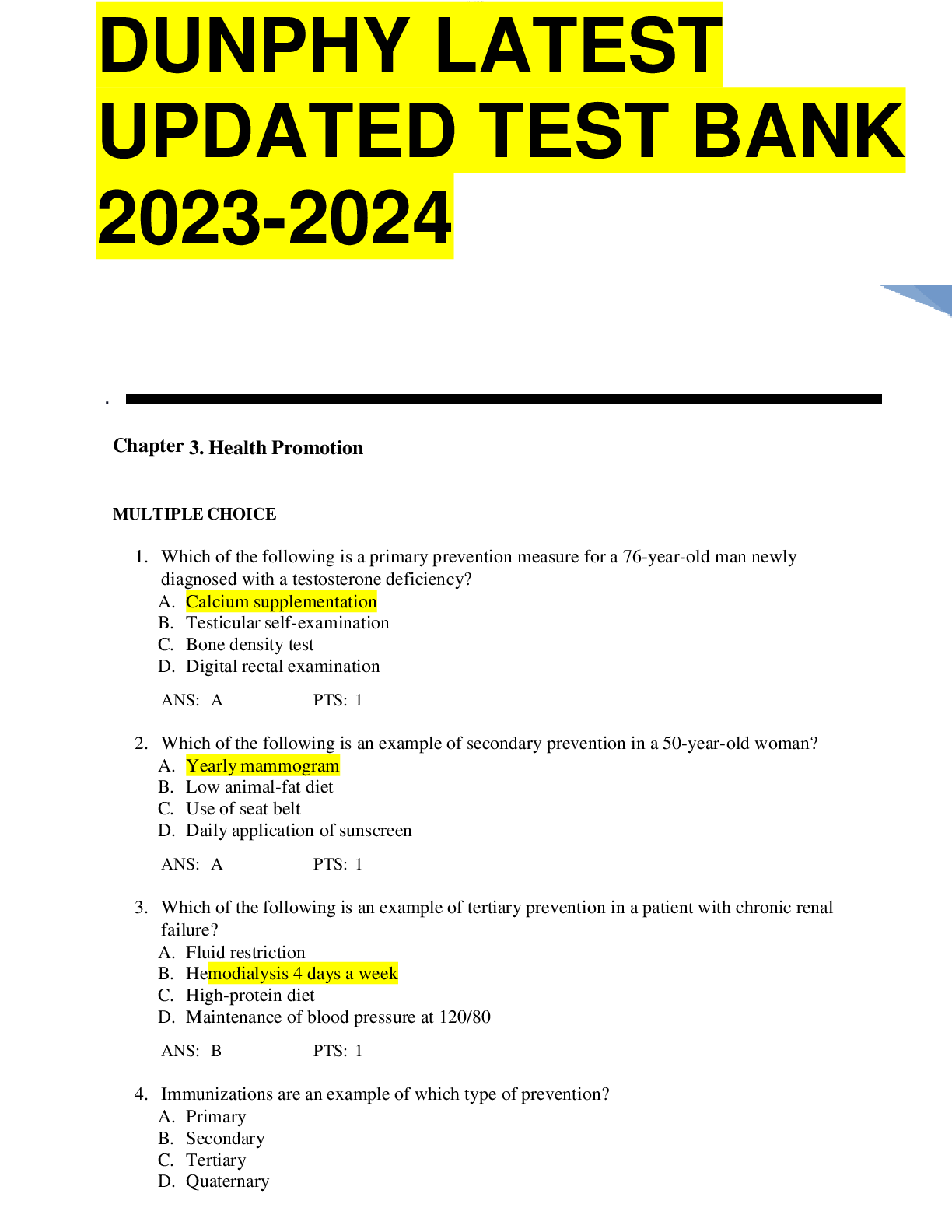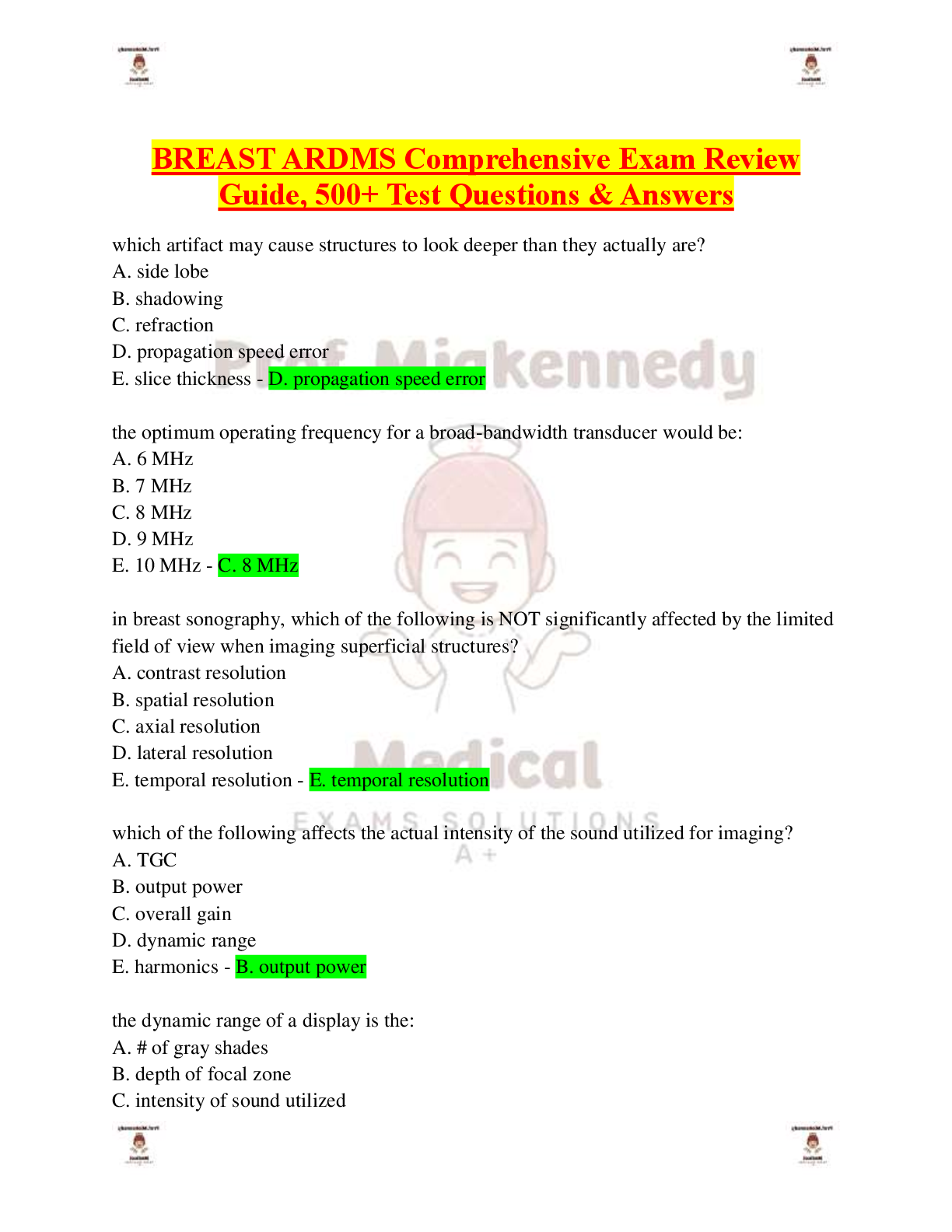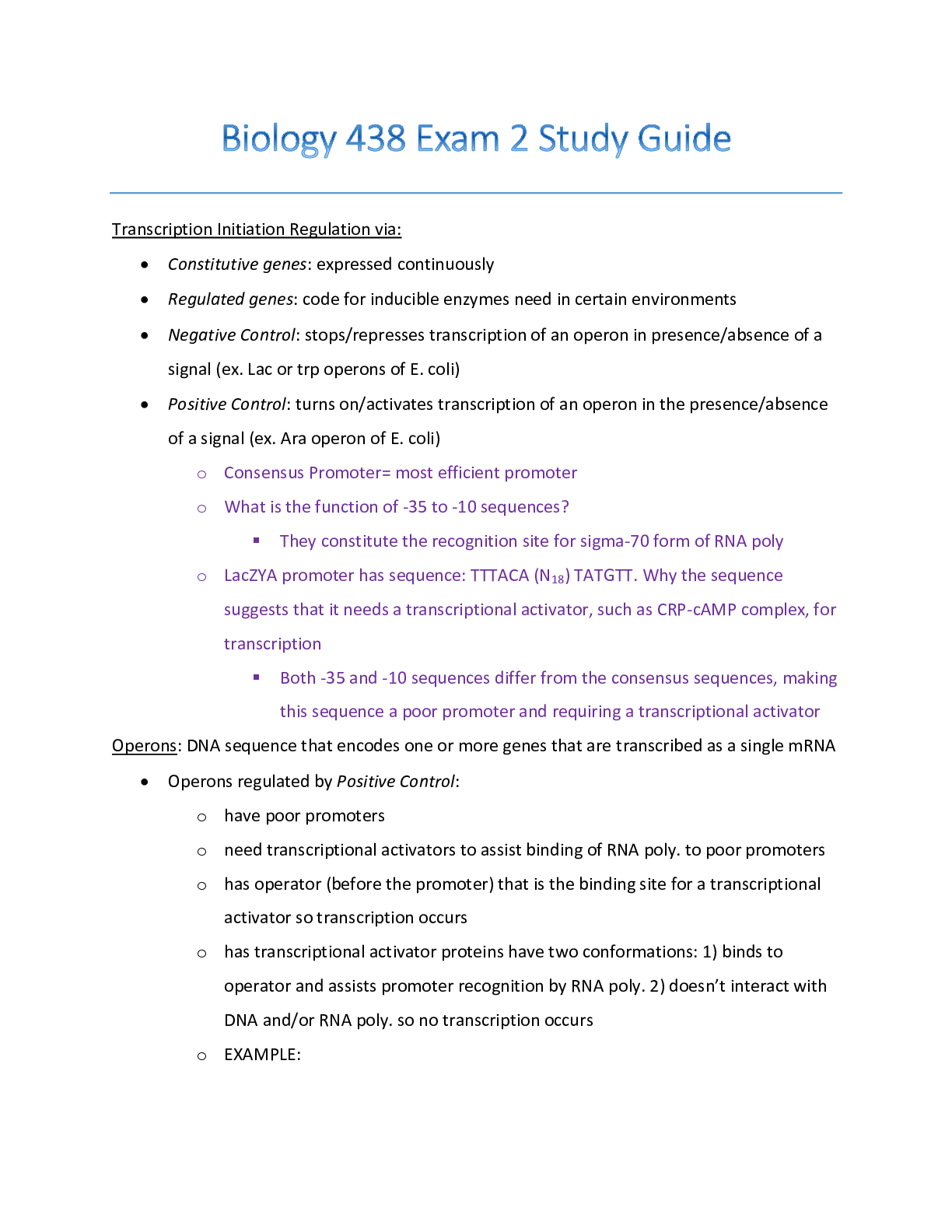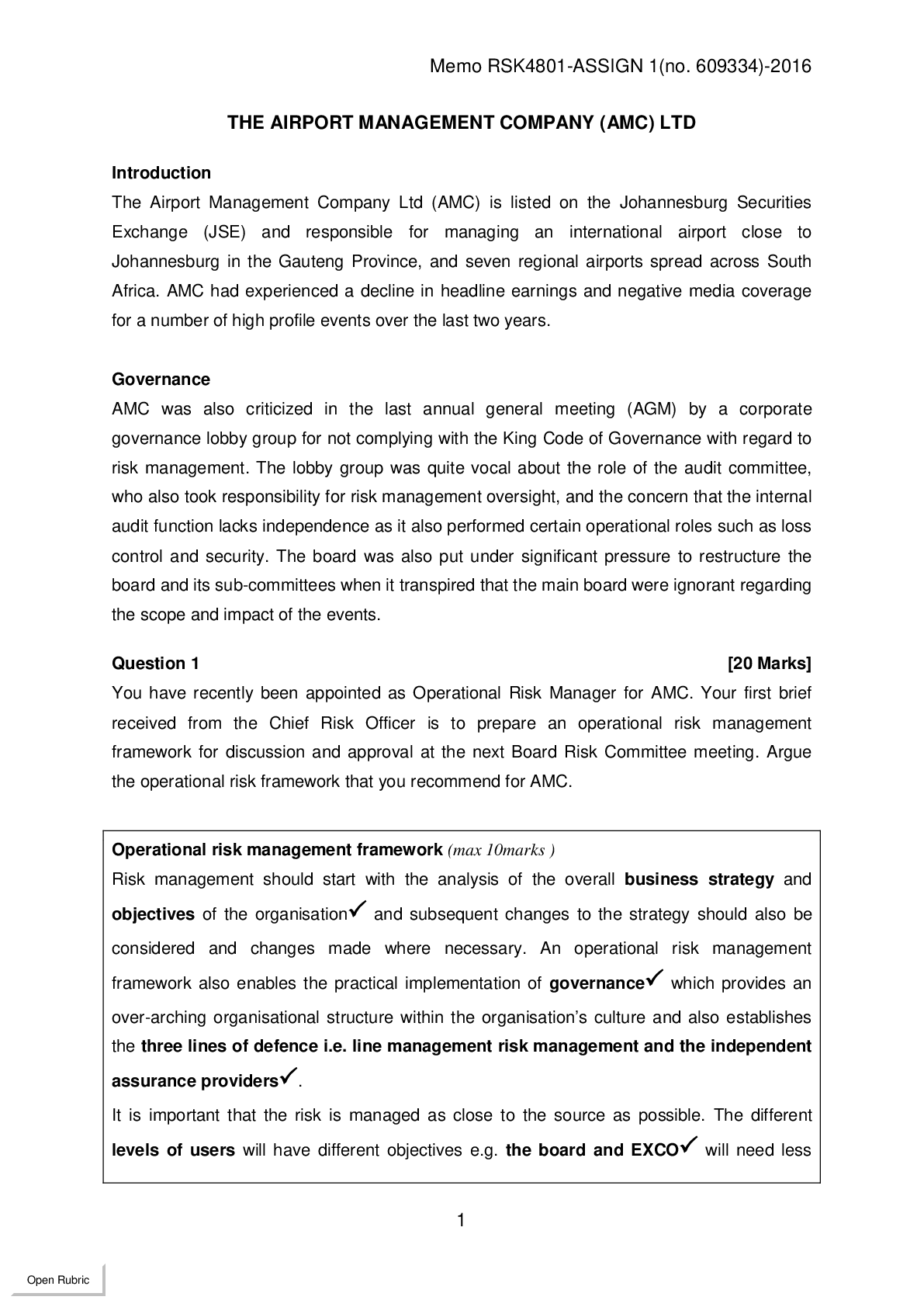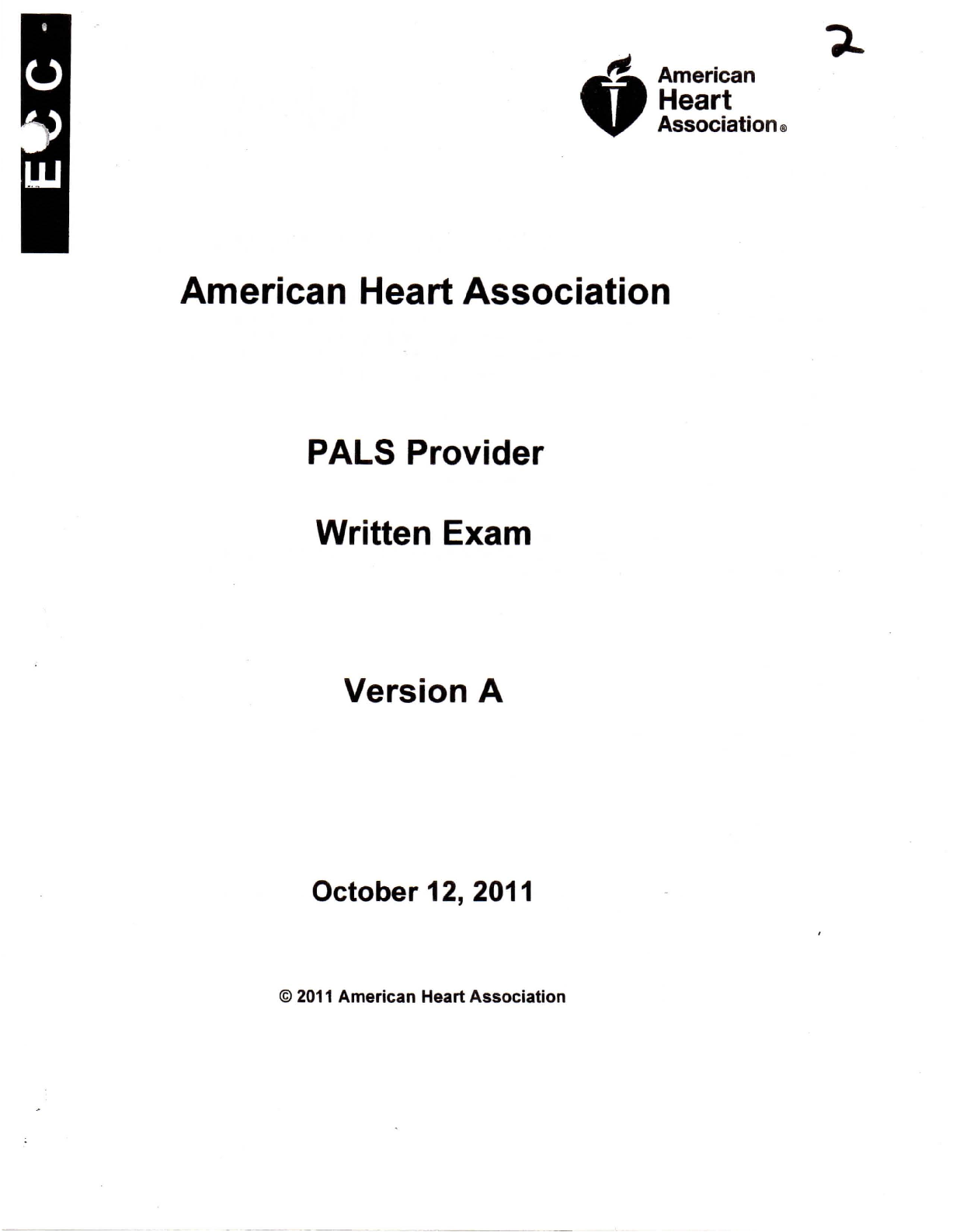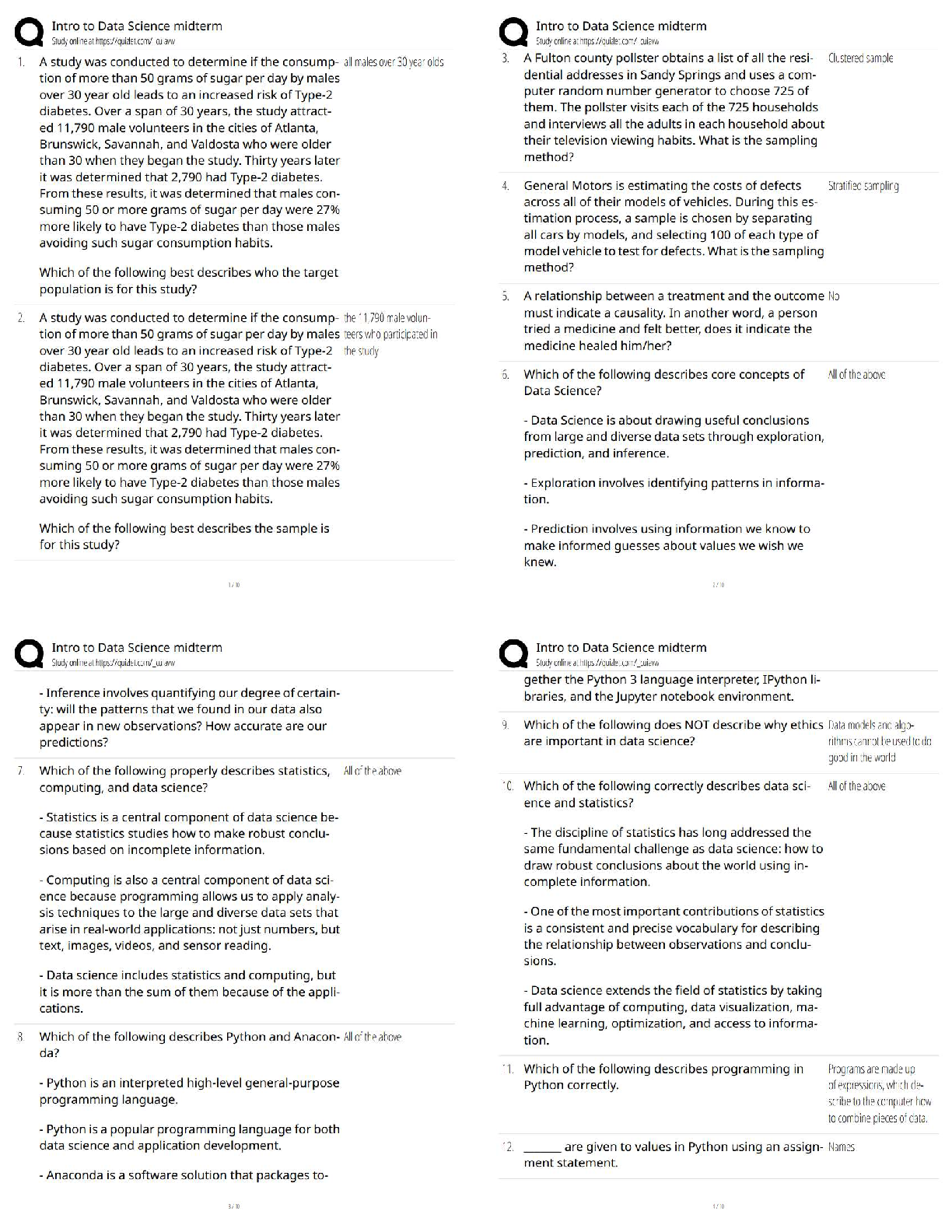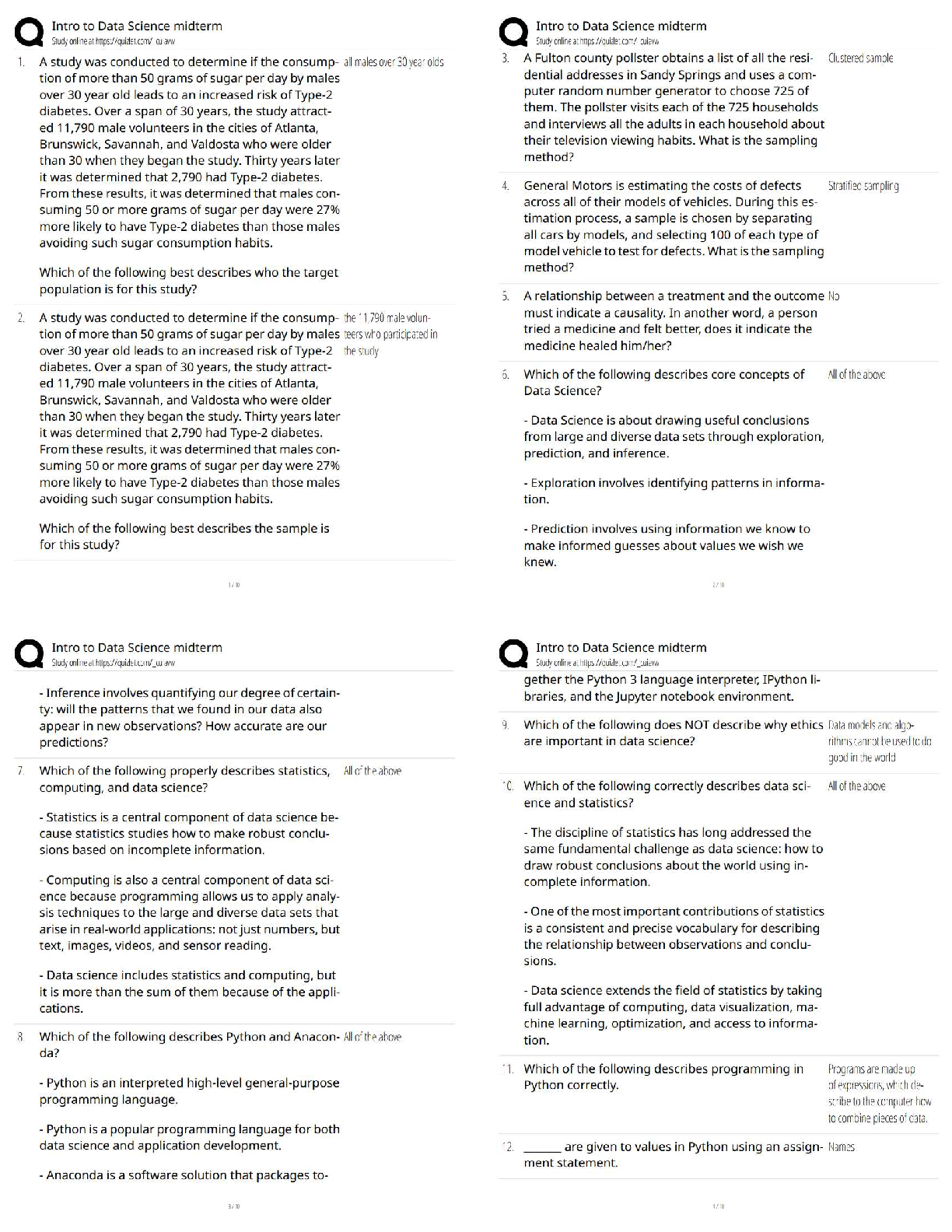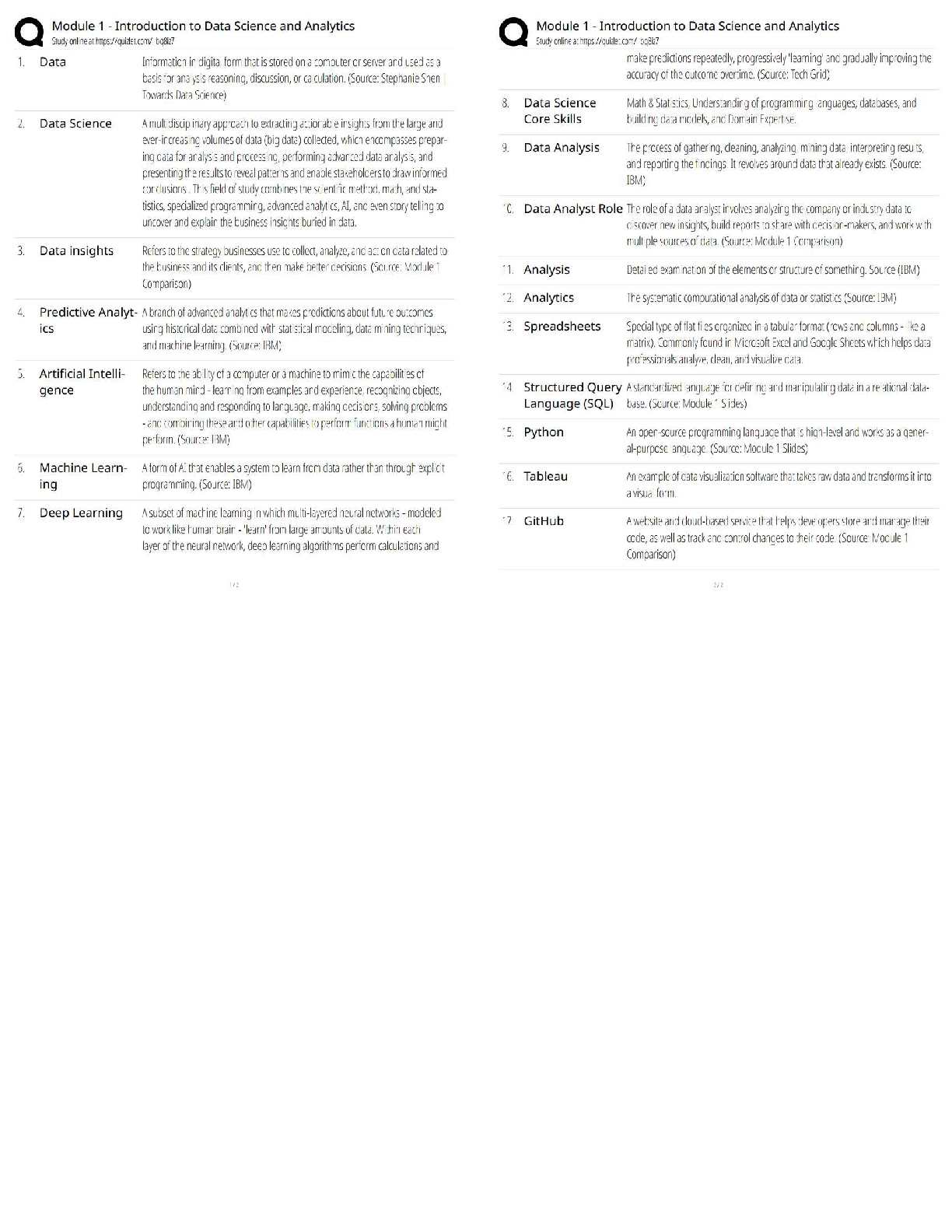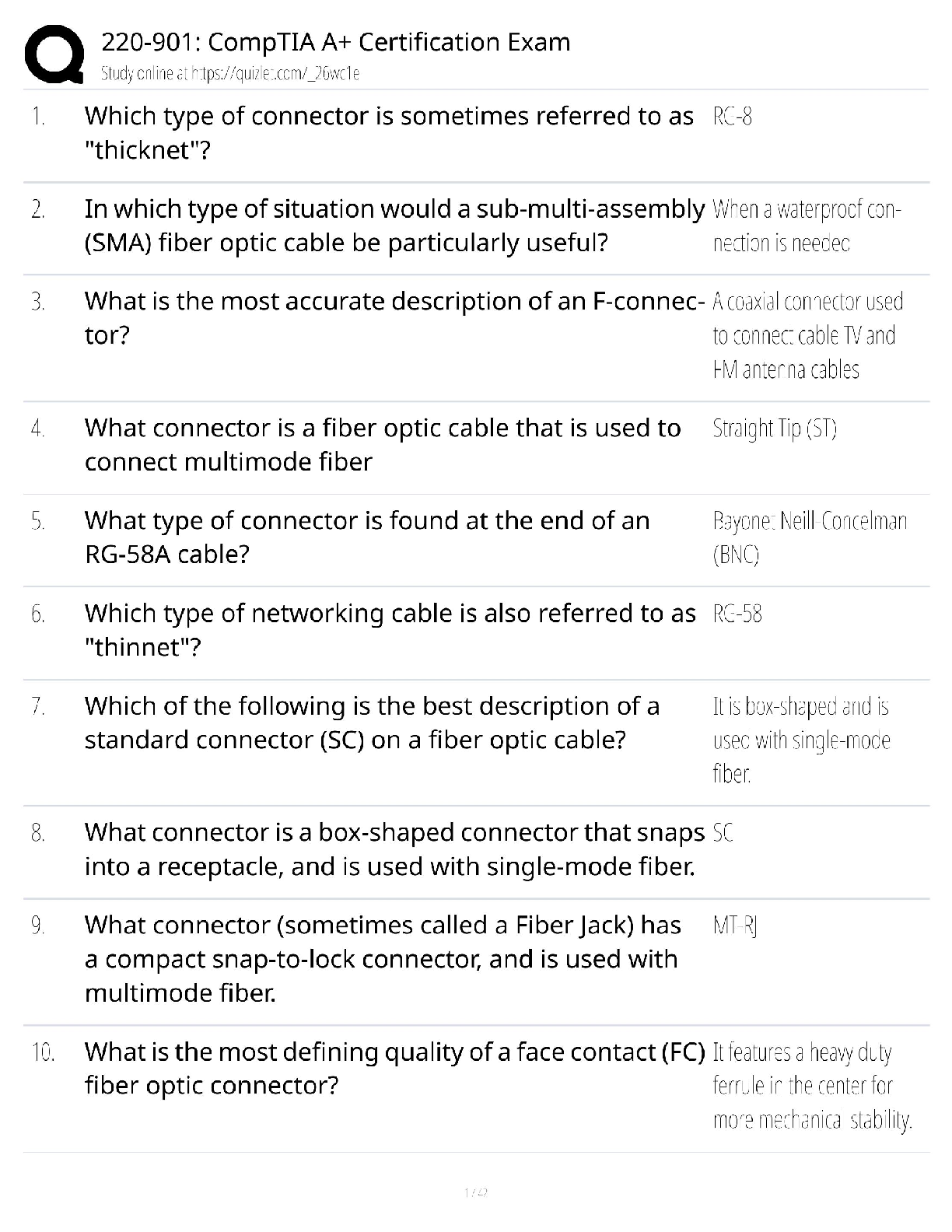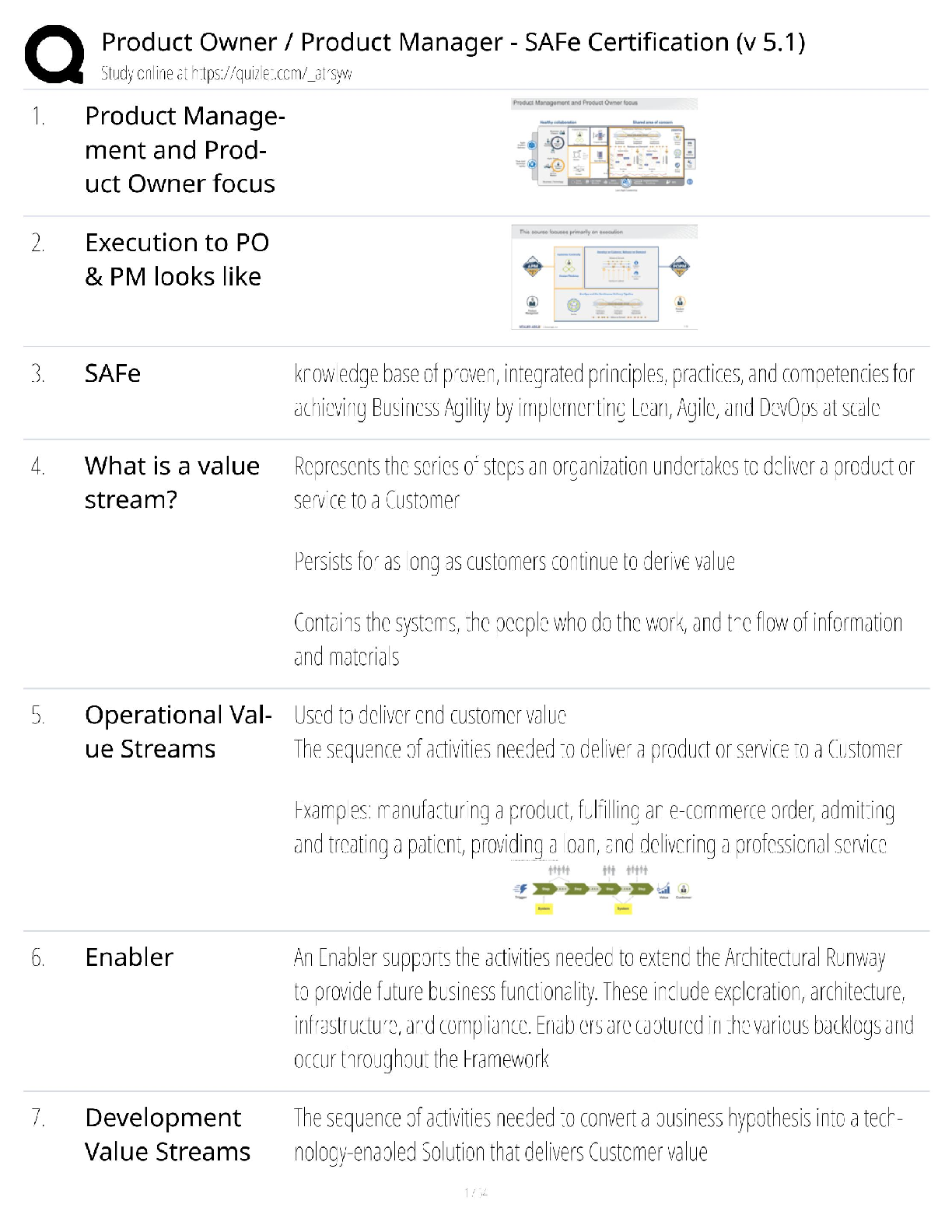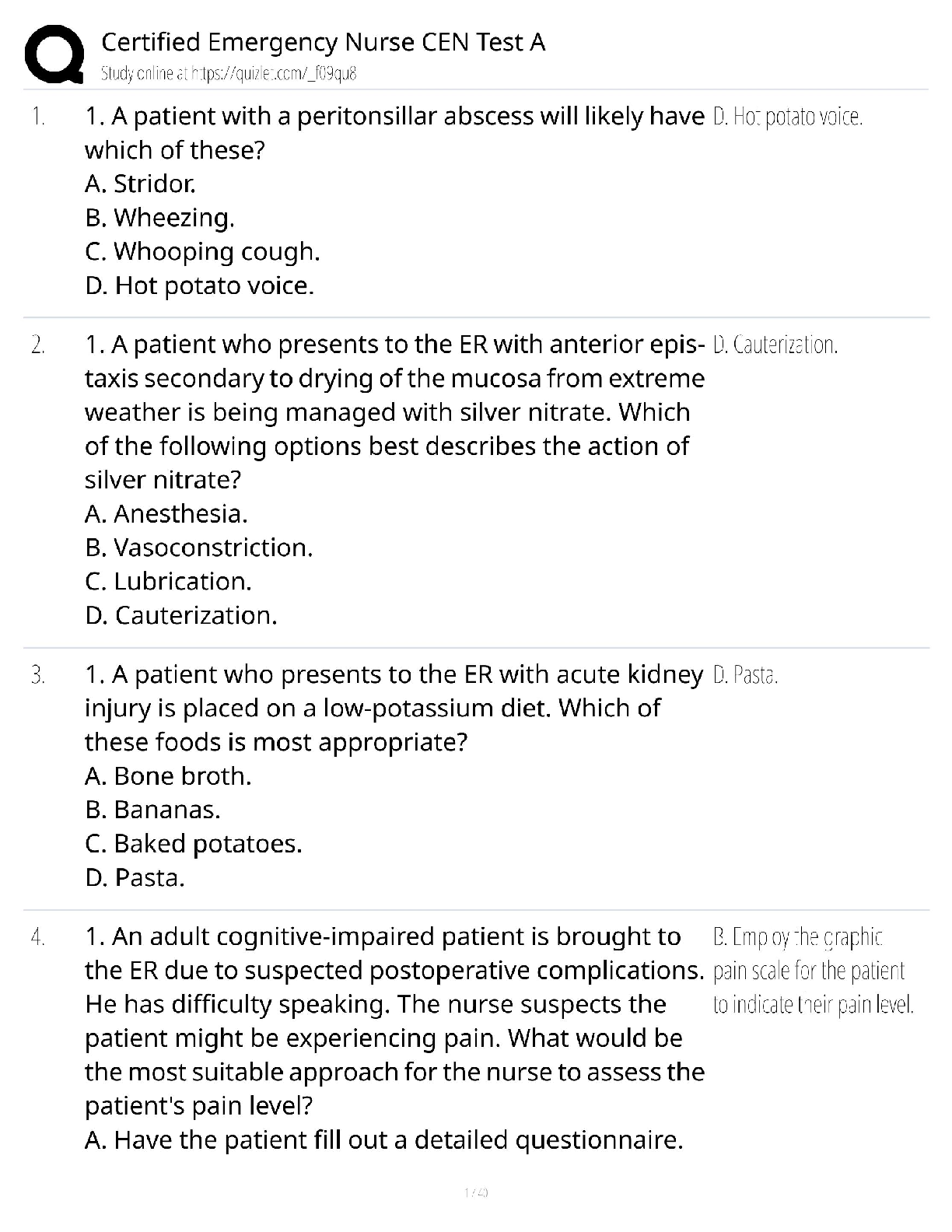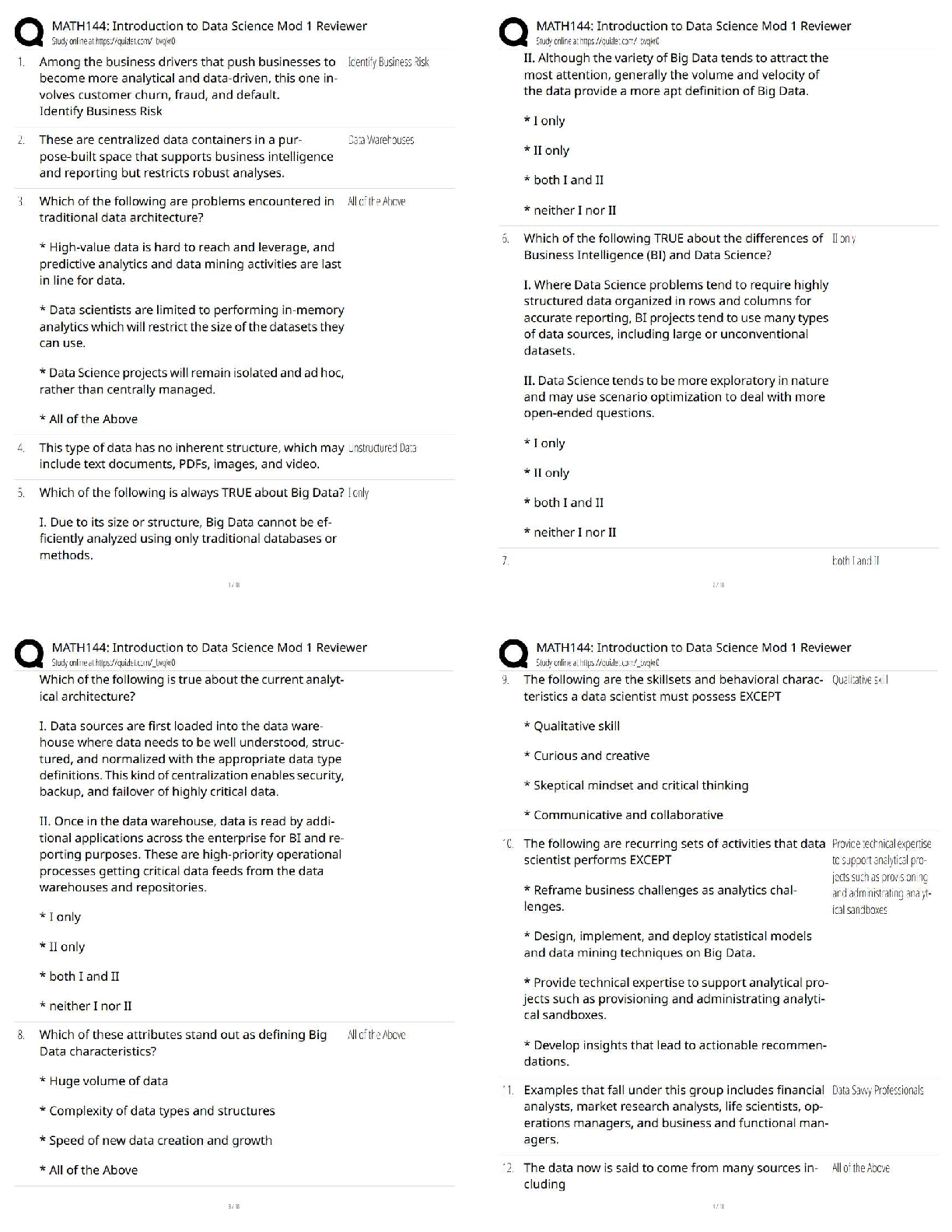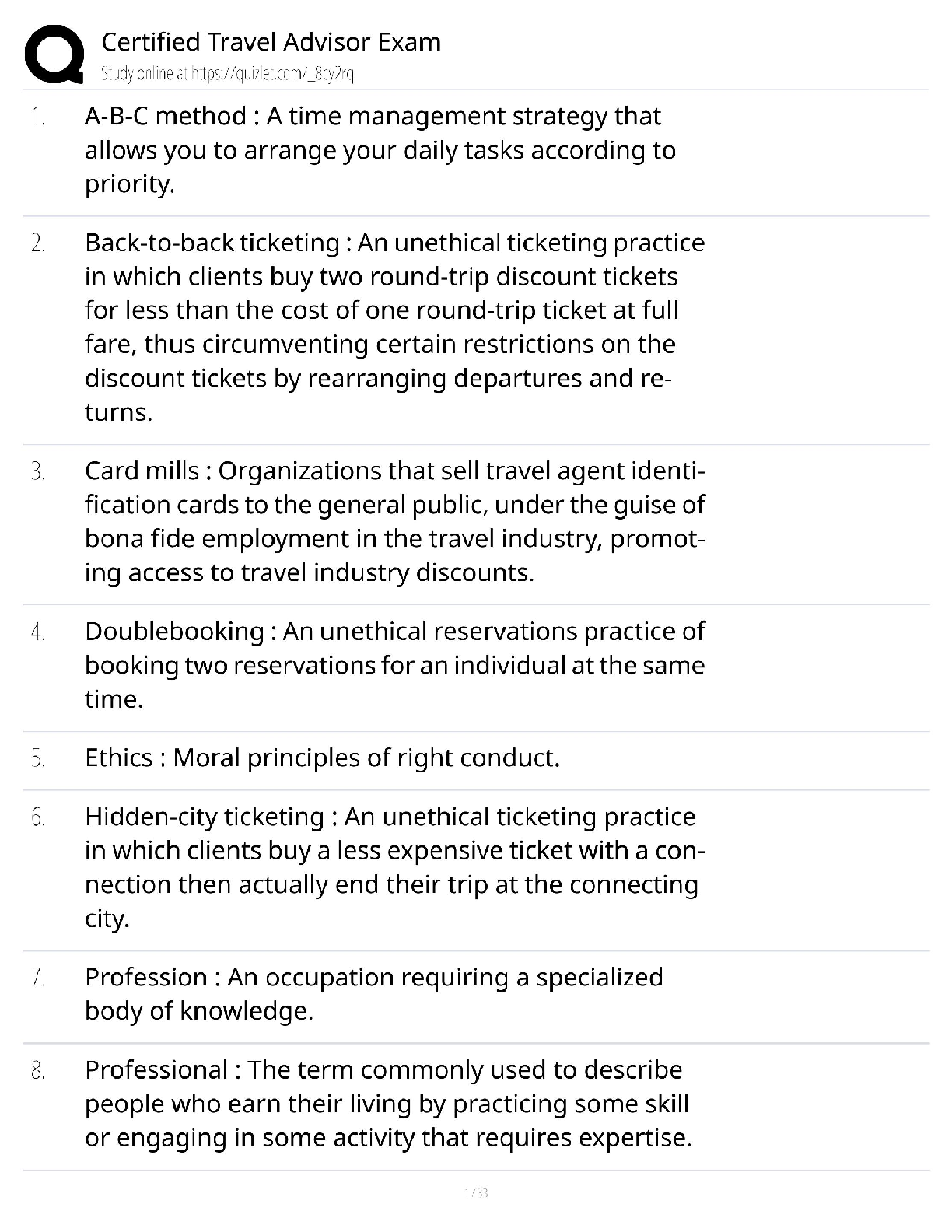CSE 551 -Unit 4 Quiz solution
Document Content and Description Below
1 Problem 1
Solve the following recurrence relation using any method. Provide your
answer in big-O notation: T(n) = 2T(n
2 ) + log(n) for n > 1; 0 otherwise
� T(n) = O(n)
� T(n) = O(nlogn)
� T(n
...
) = O(n2)
� T(n) = O(logn)
2 Problem 2
Suppose we have a modi�ed version of Merge-Sort that at each recursive level
splits the array into two parts each of size 1
4 and 3
4 respectively. Also, assume
the size of any given input array is a power of four. Give the asymptotic
time complexity of this Merge-Sort variant.
1
� O(nlogn)
� O(n)
� O(logn)
� O(n2)
3 Problem 3
Suppose we modify the combine step of the closest pair of points algorithm
such that distance � from dividing line L is updated immediately to �0 when-
ever the distance between two points on either side of L is discovered to be
less than �. In this sense, we allow the two-dimensional range about L
wherein we compare points to assume multiple areas (getting smaller as �
becomes updated) during the same combine step for each recursive call. De-
termine whether the following statement is true or false and explain your
reasoning: The time complexity of the closest pair of points algorithm is
guaranteed to be improved by a constant factor.
� False: If � is reduced only after the last pair of points sorted
by y-coordinate within � of L is compared, then no additional
bene�t will be gained.
2
� False: The number of comparisons made between points within � of L
would necessarily be the same as without the modi�cation.
� True: If � is reduced every time a new closest pair of points is found
during the combine step, then it will always be the case that a fewer
number of future comparisons will be necessary after � is adjusted to�0.
� True: If � is reduced every time a new closest pair of points is found
during the combine step, then it will sometimes be the case that a fewer
number of future comparisons will be necessary after � is adjusted to
�0.
4 Problem 4
Suppose there is a set of n points each with the same x-coordinate. Obvi-
ously, this will cause the closest pair of points algorithm to fail. Since this
is the case, what must be the smallest possible asymptotic time complexity
required to �nd the closest pair of points in this instance?
� O(nlogn)
� O(nlog2n)
� O(n2)
� O(n)
5 Problem 5
Given a two-dimensional plane with points (0,1),(1.5,2),(1,4),(4.8,2),(5,3),
(7,3.5),(8,8),(7.5,9.5), give the numerical value of � before the combine step
on the highest level of the recursive stack.
� 1.58
� 1.80
� 1.02
� 2.06
6 Problem 6
Given a two-dimensional plane with points (1.5,1), (2,3.8), (2.75,1), (5,3.3),
(6,3.5), (7.5,2), (8.5,1.2), (8,5), give the numerical value of � after the com-
bine step on the highest level of the recursive stack.
� 1.02
� 0.89
� 1.28
� 1.25
4
7 Problem 7
Identify which of the following statements are true regarding the Karatsuba
multiplication algorithm.
i.) The Karatsuba algorithm is asymptotically less complex than merge-
sort with respect to the number of operations it requires to terminate.
ii.) Each call to this algorithm produces three additional recursive calls
on roughly half the number of bits as the previous call.
� ii. only
� i. only
� i. and ii.
� Neither of these are true
8 Problem 8
Suppose Anatolii Karatsuba had somehow discovered a way to produce the
product of integers x and y with only two real multiplications and an asymp-
totically linear number of adding, subtracting and shifting operations per
recursive call to his algorithm. What would have been the asymptotic time
complexity of his algorithm if x and y are each represented by n bits? (Hint:
Read pages 215 to 218 in the Kleinberg and Tardos textbook carefully before
answering.)
� O(nlogn)
� O(n1:585)
� O(n)
� O(n2)
9 Problem 9
Identify which of the following statements are true regarding Strassens fast
matrix multiplication algorithm as applied to matrices of size n by n.
i.) Strassens algorithm is the fastest known algorithm for matrix multi-
plication.
ii.) If n is not a power of 2, adding rows and columns of zero-entries until
n is a power of 2 will allow the algorithm to run normally and produce the
correct result.
� ii. only
� i. only
[Show More]
Last updated: 3 years ago
Preview 1 out of 7 pages
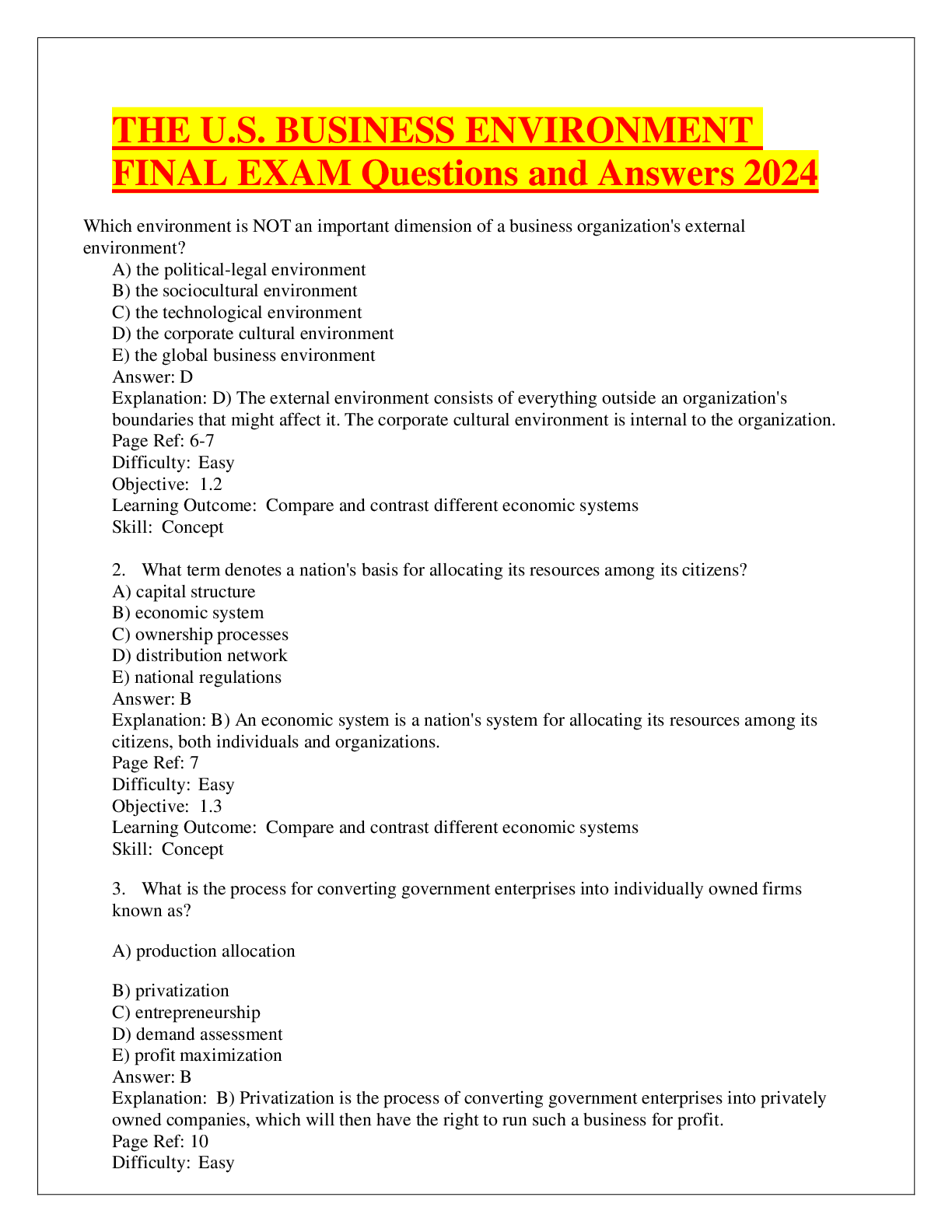
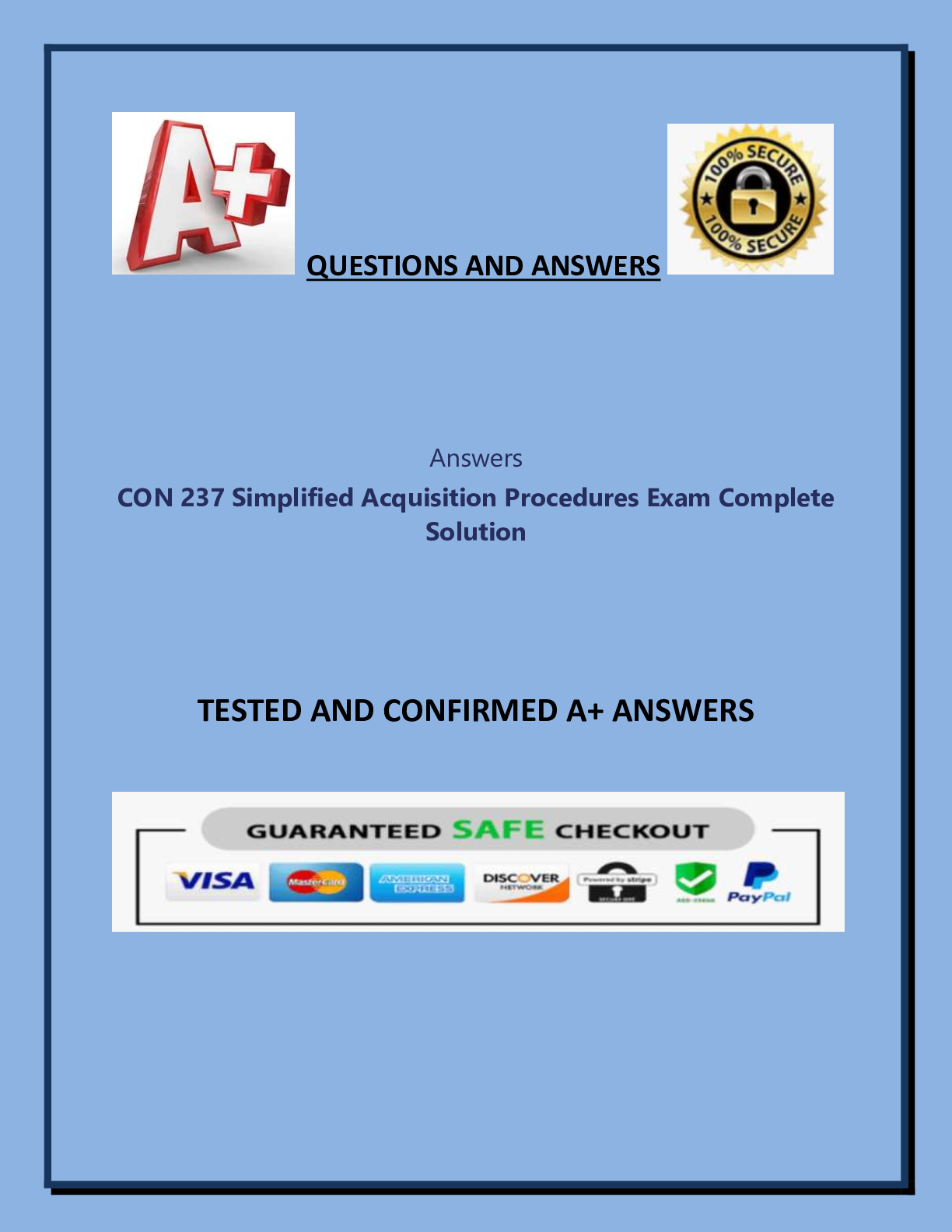
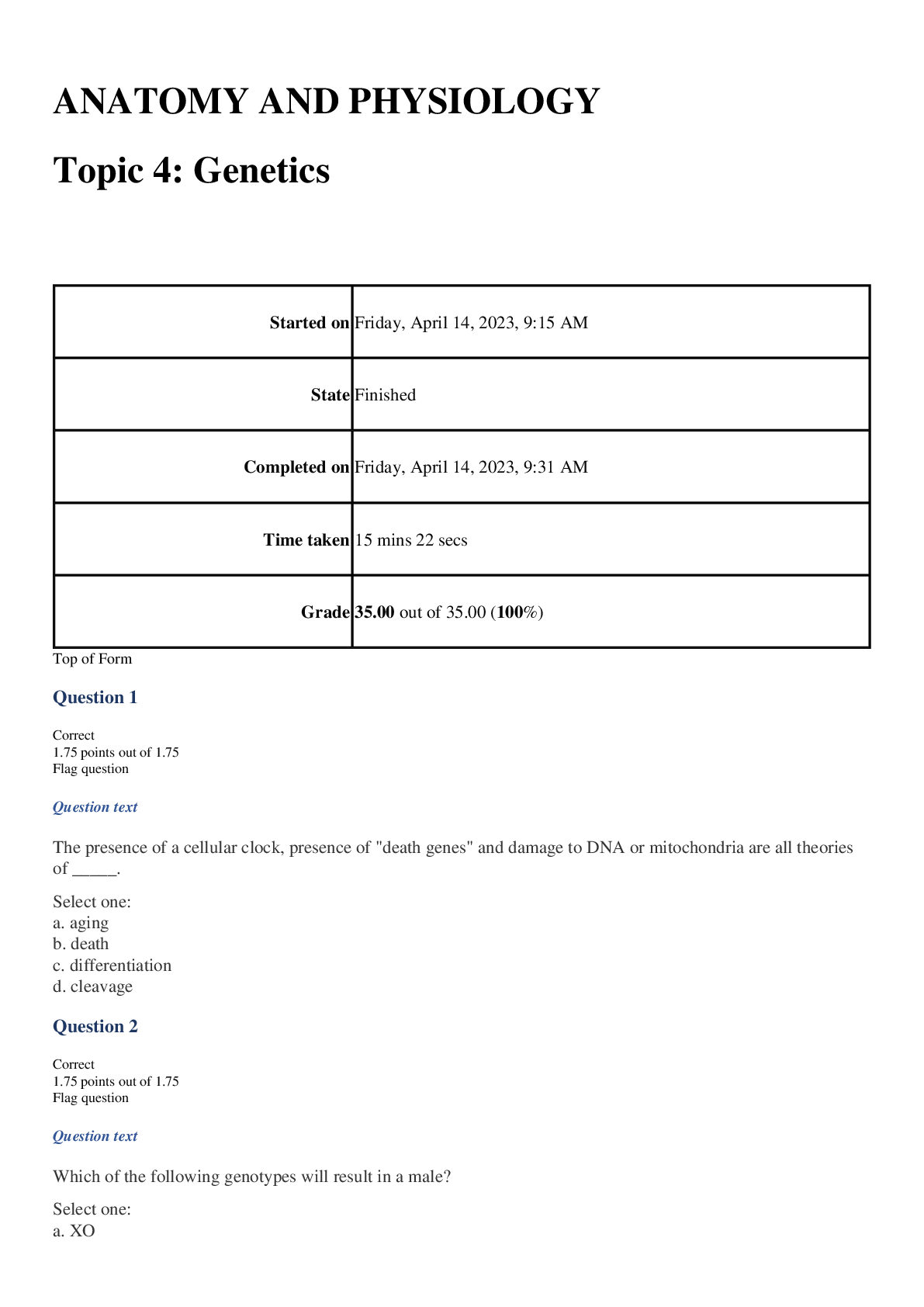

.png)
